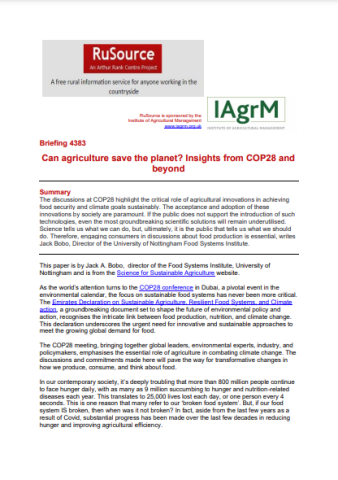Summary
The discussions at COP28 highlight the critical role of agricultural innovations in achieving food security and climate goals sustainably. The acceptance and adoption of these innovations by society are paramount. If the public does not support the introduction of such technologies, even the most groundbreaking scientific solutions will remain underutilised. Science tells us what we can do, but, ultimately, it is the public that tells us what we should do. Therefore, engaging consumers in discussions about food production is essential, writes Jack Bobo, Director of the University of Nottingham Food Systems Institute.
Download the briefing below.


